Competing in the Olympics without a country
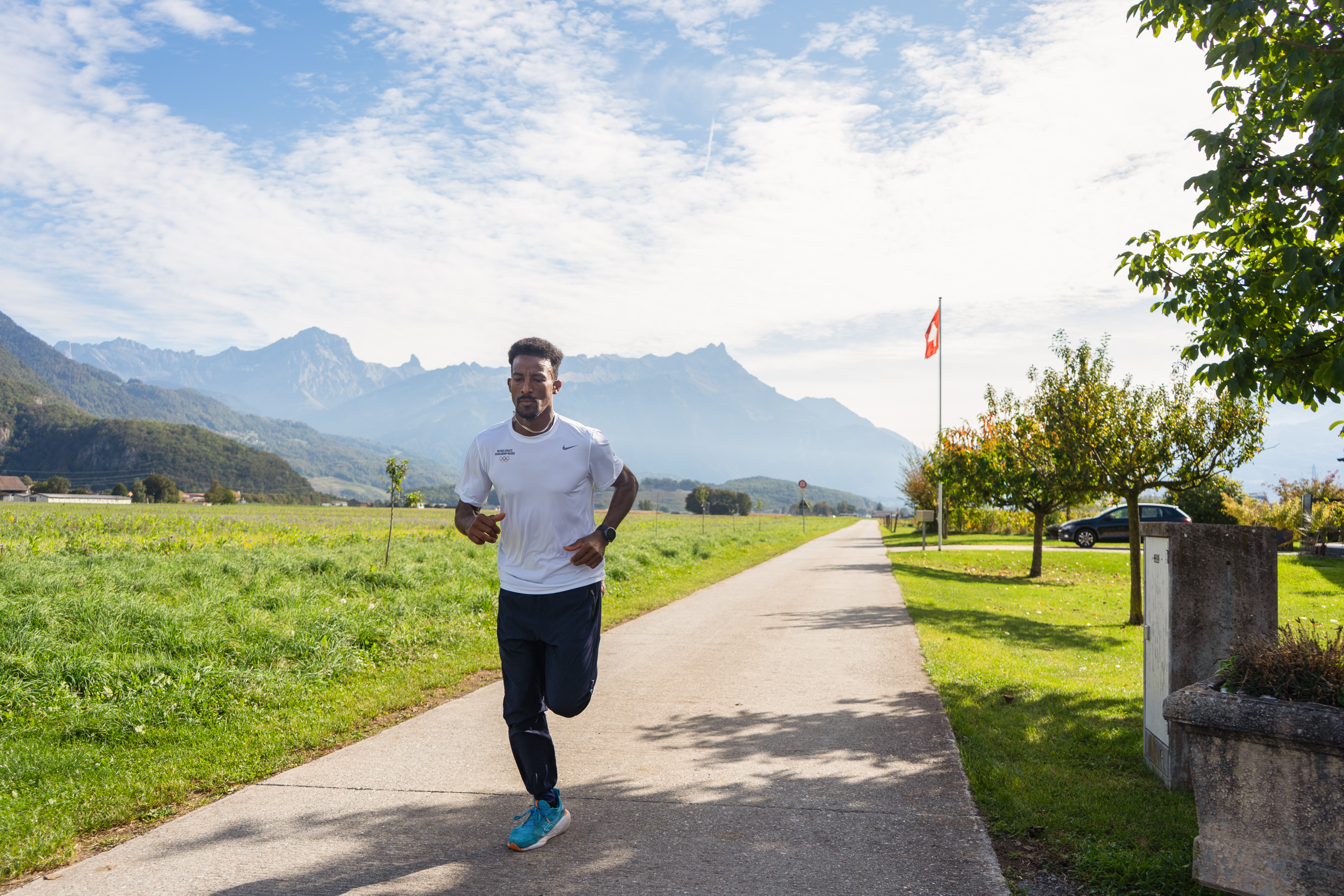
Two refugee athletes in Switzerland are hoping to compete in the Paris Olympics under the Refugee Olympic Team. The team was created in 2016 and has grown from 10 competitors to 29.
Before Habtom Amaniel arrived in Switzerland, the prospect of competing at an Olympic Games seemed impossible. Growing up in Eritrea alongside 12 siblings, his dream of becoming a professional athlete always seemed out of reach.
“I knew I wanted to be a runner, but I was living in a small village. There was no structure, no club, no coaches”, recalls the 33-year-old. “My main running was to get to school. Ten kilometres there, 10 kilometres back.”
Sitting comfortably in his lightweight running gear and speaking to SWI swissinfo.ch from a training facility in his adopted canton Vaud, Habtom says that since settling in Switzerland, things have changed.
He is now one of four refugee athletes living and training in Switzerland. With the Paris Olympics only months away, Habtom is hoping to represent the International Olympic Committee’s (IOC) Refugee Olympic Team in France, with ambitions of bringing back a medal to his home in Switzerland.
An early start
While Habtom only began training after his arrival in Switzerland, refugee athletes are often already well-established sportspeople in their countries of origin before they are forced to flee.
In the Syrian city of Aleppo, Baddredin Wais began competing in regional cycling competitions at the age of 14. The youngest of seven siblings, it was his family that inspired him to start cycling.
“I stole a bike from my brother,” the 33-year-old says with a wry smile, sitting in a café in the quiet streets of the Swiss capital, Bern. “I sometimes got in trouble with him”.
The first Syrian junior rider to qualify for the World Championships at the age of 18, Baddredin’s success catapulted him into the Syrian national team. “My dream was to go to the Olympics and be a professional,” he says. His dream, however, was cut short by a civil war that has raged in the country since 2011.

Forced to flee
The Arab Spring, a wave of popular protests that animated town squares with calls for democracy and regime change, had swept across North Africa and the Middle East. In Syria, the protests were violently crushed, and the country soon collapsed into civil war.
Baddredin’s friends died or were forced to join the army. Of the national team that he had been proud to join, half were killed. “The same age, same dream, same passion… suddenly I heard they were dead,” he remembers.
The conflict also affected him directly. After fighters involved in the Syrian civil war attacked the bus he was using to get to university in 2014, he decided to leave. Crossing the land border into Lebanon, he made his way to Switzerland via Turkey and then Greece.
For Habtom, it was the oppressive policies of the Eritrean government that pushed him to flee. Forced to join the Eritrean army, he then found himself locked up in prison for an indefinite amount of time, after he questioned his seniors about corruption within the military. “There was no way out. I felt like I was either going to die here, or I had to leave,” he says.
Narrowly escaping Eritrean soldiers, he travelled three days on foot to cross the border into Sudan. From there, he made his way to Europe.
For many, the journey is dangerous. Criminal smugglers, found through a whirl of rumours, transport refugees such as Habtom and Baddredin across borders, for a fee.
“It’s a brutal business sometimes, with a high human price,” says Anja Klug, UNHCR Representative for Switzerland and Lichtenstein. These smugglers often care more about their wallets than about refugee’s lives.
“They had guns, they would shoot you if you spoke”, Habtom recalls. He saw some with whom he travelled dragged out of cars that were used to smuggle them across borders, and killed.
A new life
With a view over Lake Geneva, the Alpine peaks reaching up into the sky were among the first things that Baddredin noticed as he sat in the suspiciously quiet train departing from Geneva Airport. Having flown from Greece, he was on his way to Lausanne to stay with a Syrian friend he had made in his early cycling career.
Despite initially hoping to settle in Belgium, he soon decided to apply for refugee status in Switzerland. It was the Alpine nation’s order and cleanliness that attracted him, as well as its neutrality and reputation for peace.
After months of travelling, he had found a place to stay. “It was the start of a new life”, he says.
While the initial feeling of elation at having reached a safe country is significant, the challenge is not over. Many refugees are forced to battle through a hostile asylum system, and all must adapt to life in a new country.
One of the largest challenges is learning to communicate in a new language. This is especially difficult in Switzerland, a country with four national languages and a variety of widely spoken dialects.
In these circumstances, sport can offer a valuable means for refugees to integrate into their adopted countries, learn the language, and regain a sense of autonomy, Klug from the UNHCR explains.
Initially unable to speak a word of French or German, Baddredin soon joined a small amateur cycling team. “Cycling helped me a lot. I was with Swiss people every day, talking for one or two hours” he explains in his now effortless Swiss-German dialect. “I understood the country, the rules, and even the language faster and faster.”

For Habtom, running provided him with a network of local contacts. A Swiss athlete and coach had set up a running group that was frequented by refugees and locals alike. “It allowed me to get to know lots of people. For my social life in Switzerland, it has helped a great deal,” he explains.
With the support of the group, Habtom’s running steadily improved. His dream, as always, had been to compete at an Olympic Games. An obstacle, however, stood in the way.
Searching for a team
To compete at an Olympic Games, athletes must be able to represent a country, explains Gonzalo Barrio, manager of the International Olympic Committee (IOC) Refugee Olympic Team. Refugees such as Habtom and Baddredin therefore found themselves in limbo.
Having fled to Switzerland, they could no longer represent their home countries. However, despite having officially recognised refugee status, they were also not Swiss citizens and could therefore not compete under the Swiss flag. “Their sporting career was put on hold, this was a real problem,” Gonzalo explains.
The solution came in the form of the Refugee Olympic Team. Founded in 2016, the team represented the first ever opportunity for refugee athletes to compete on the Olympic stage.
This was followed by the formation of the IOC’s Refugee Olympic Foundation (ROF) and its Refugee Athlete Scholarships, which provide $1,500 ($1362) per month to fund the training and living costs for 70 scholarship holders around the globe, including Habtom and Badreddin.
“The goal was to give access to refugees to compete at an elite level, and represent and inspire the millions of refugees and displaced people around the world,” Gonzalo says from his office in Lausanne, home of the IOC.
From across the globe, 10 refugee athletes were initially selected by the IOC to compete at the 2016 Rio Olympics. Four years later, 29 refugee athletes walked out at the opening ceremony of the 2020 Tokyo Olympic Games. One of those, was Baddredin. The number of refugee competitors in Paris has not been confirmed.
Placing 38th in the men’s individual time trial cycling event, he became the second ever Swiss-based refugee to compete at an Olympic Games. “It was a very special feeling,” he says, “my family and friends were so proud”.
Wanted in Syria for leaving the country and evading the government’s compulsory military service, Baddredin has been unable to see many members of his family in the years since he fled. His father passed away when he arrived in Switzerland. “My hope was to have my father next to me, and to say, ‘we made it, we’re at the Olympic games,’” he shares.

Ongoing improvements
Despite the support of the IOC, refugee athletes still face difficulties, and in some cases can find themselves barred from participating in certain competitions.
While the IOC manages the Olympic Games, independent sporting federations also exist to govern each individual sport and organise smaller international competitions.
Of the 42 international sporting federations that the IOC recognises, only 13 currently have categories that explicitly allow refugees to compete.
It is therefore impossible for refugee athletes to take part in many of the smaller events that these federations facilitate. This places them at a disadvantage.
To compete at a higher level, it is also necessary to compete at a lower level, Baddredin points out. Access to smaller competitions allows athletes to train, gain experience, and eventually succeed on the Olympic stage.
Moreover, even if they are able to compete, refugee athletes may be denied entry into a country. This can happen for political reasons or because border guards fail to understand their documentation and turn them away, Gonzalo explains.
While Habtom and Baddredin both express their immense satisfaction with the IOC’s support, the funding they receive is not enough to allow them to train as full professionals.
On top of training every day, Habtom works as a housepainter, while Badreddin works one day a week in a sports shop in Bern’s medieval old town.
Despite this, Badreddin says that the funding has enabled him to focus more on his cycling. He now trains regularly with a Lyon-based team and works with the Swiss national team to participate in big competitions.
The financial support has also enabled him to take part in a range of races, recently placing 14th in the mixed team relay at the world cycling championships in Glasgow.
For Habtom, the prospect of competing at the Paris 2024 Olympics represents the fulfilment of his ultimate ambitions. “It is something I dream about day and night. It runs through my head all the time,” he says with a smile. “That’s the main goal, and I’ll do everything that needs to be done to achieve it.”
Edited by Virginie Mangin/ds

In compliance with the JTI standards
More: SWI swissinfo.ch certified by the Journalism Trust Initiative








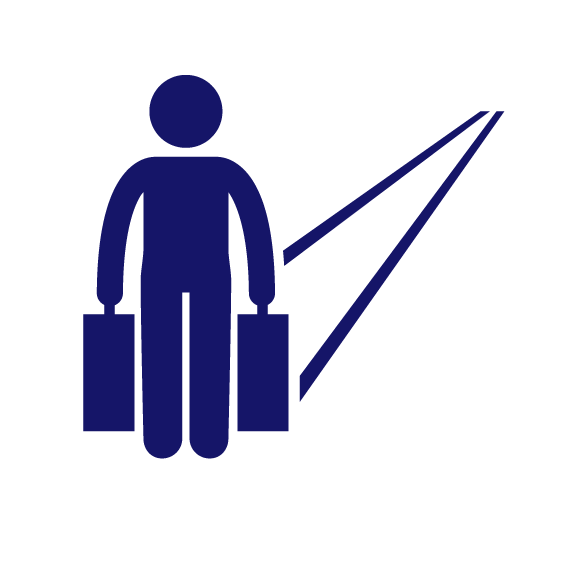
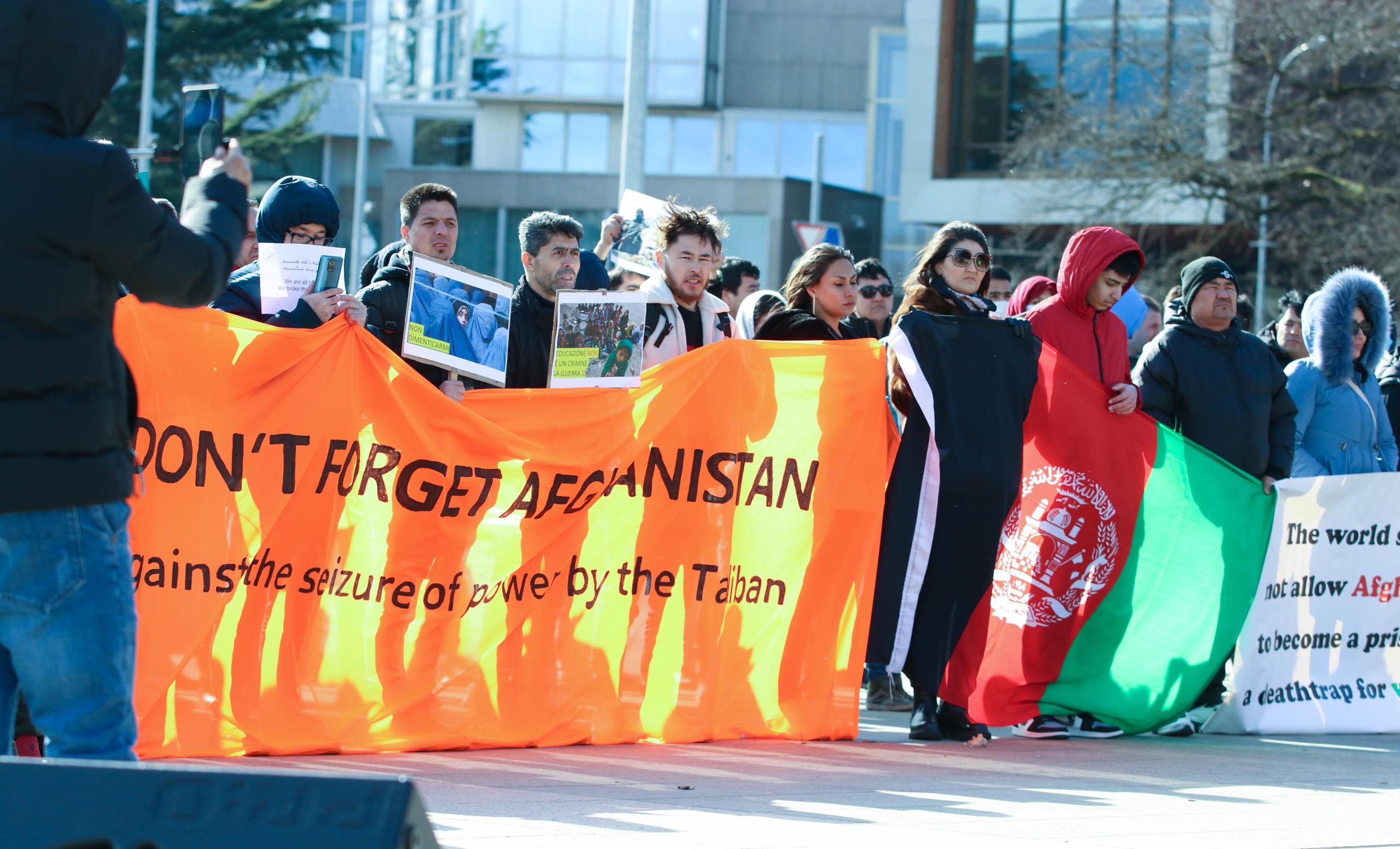
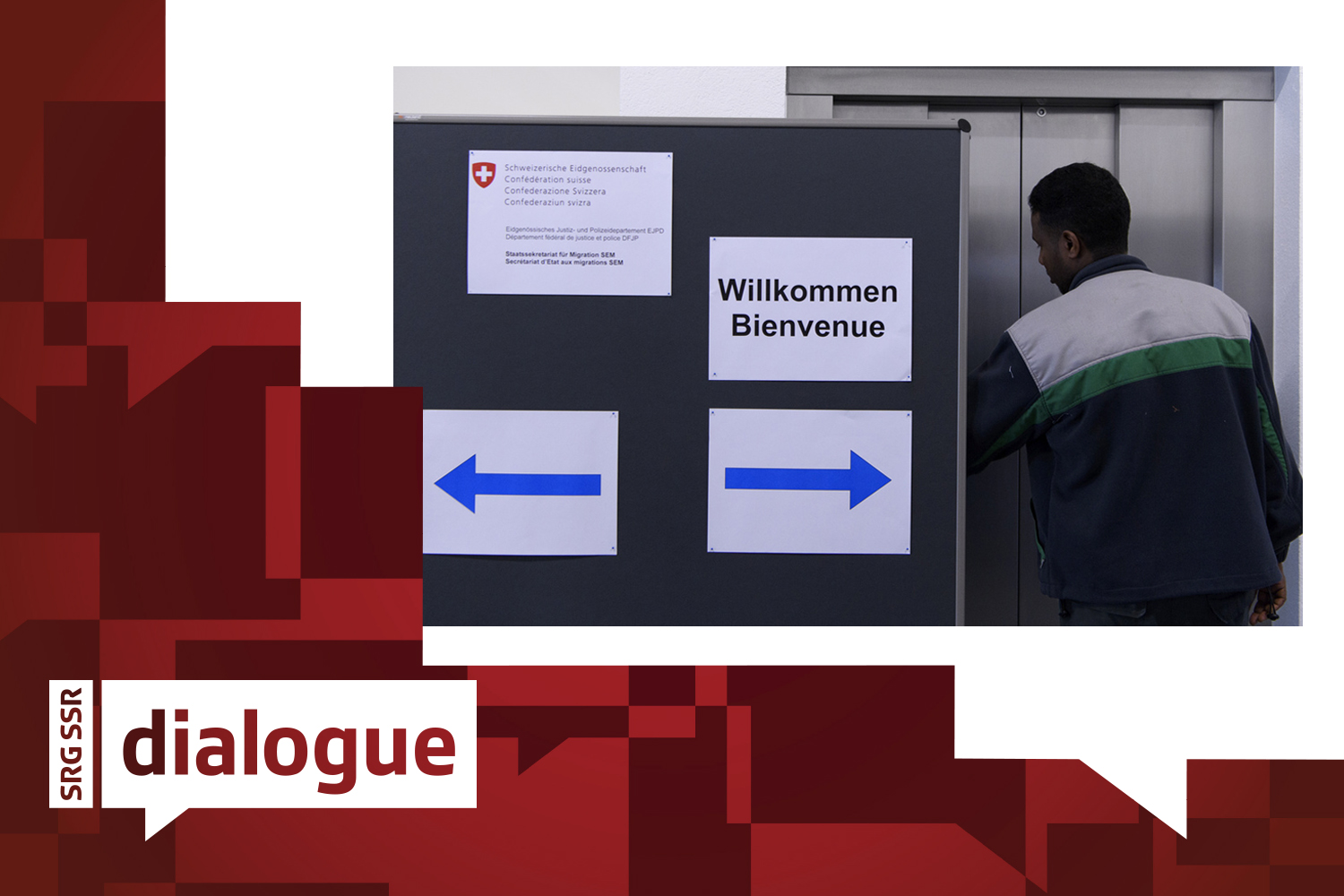
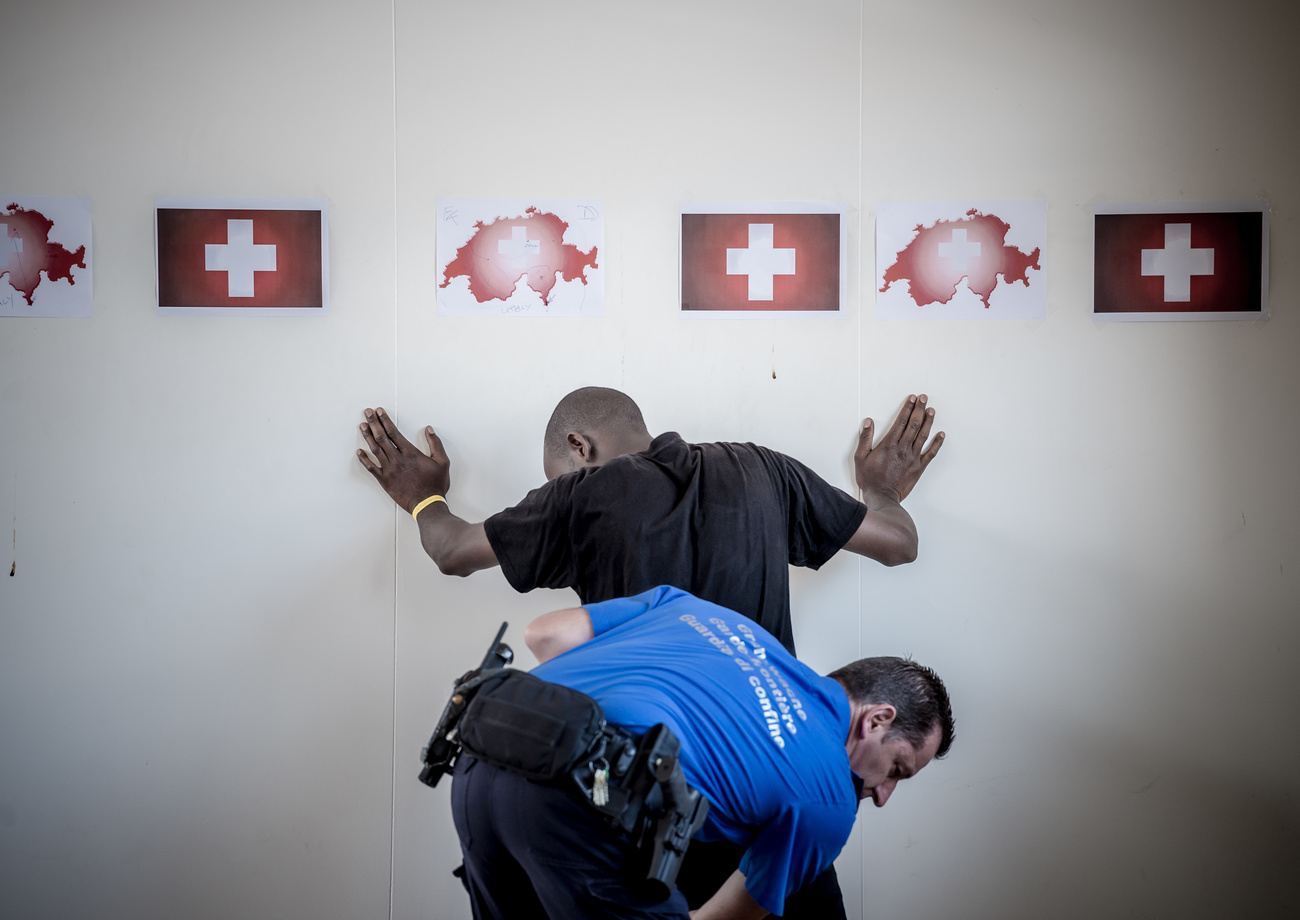
You can find an overview of ongoing debates with our journalists here . Please join us!
If you want to start a conversation about a topic raised in this article or want to report factual errors, email us at english@swissinfo.ch.